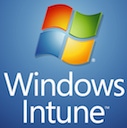And so it begins. Microsoft has started to promote noteworthy Windows Intune wins, describing how the cloud-based PC management and security service is helping small, midsize and large organizations.


windows intune
And so it begins. Microsoft has started to promote noteworthy Windows Intune wins, describing how the cloud-based PC management and security service is helping small, midsize and large organizations. Key Windows Intune adopters, Microsoft notes, include Save the Children, geotzpartners and eLitigation Solutions (a managed services provider, by the way). The key question: Are those isolated Windows Intune wins, or is the Microsoft’s cloud service really gaining momentum?Among the key statements Microsoft and its Windows Intune customers made today:
Save the Children expects to save $20,000 a year in malware costs and $50,000 in Windows 7 licenses (Windows Intune costs $11 per system per month but offers those Windows 7 discounts…).
geotzpartners says Windows Intune helps its IT staff to save 45 percent of its time by using a web-based console instead of manual processes. Also, Windows Intune has cut support calls by 25 percent, and the company has saved €12,500 (U.S.$16,800) by retiring third-party products, geotzpartners indicated.
eLitigation Solutions says Windows Intune helped the company to standardize its PC environment, bolstered security, and reduced PC costs by 30 percent.
Those are impressive anecdotes. And I believe Windows Intune has been a reliable cloud service since launching in 2011.
Potential Issues
Still, the anecdotes above also reveal Windows Intune’s core challenges:
Windows Intune was designed as a PC management platform. But Microsoft aggressively promotes the special pricing that Windows Intune delivers for Windows 7 customers. It’s as if Windows Intune sometimes can’t sell itself, so Microsoft has to roll out Windows 7 special pricing to get customers on the Windows Intune bandwagon.
Another challenge: Windows Intune is purely a Windows PC management system — at a time when businesses increasingly have multiple platforms (Windows, Mac OS X, Google Android, Apple iOS, etc.).
Many MSPs grew up as Microsoft resellers. But most MSPs, even those serving small business customers, require cross-platform management software. The evidence so far: Only 1.4 percent of our fifth-annual MSPmentor 100 survey participants said they use Windows Intune.
Bottom Line
Of course, it’s early in the Windows Intune game. Microsoft’s own R&D continues. And the software giant also plans to work more closely with TruMethods, the MSP coaching organization, to help articulate the value of Microsoft’s cloud services to MSPs.
When it comes to announcing customer wins, Microsoft is super-savvy. But when it comes to describing deployment figures for Windows Intune, Office 365 and Windows Azure, Microsoft has yet to share the actual numbers…
About the Author(s)
You May Also Like


